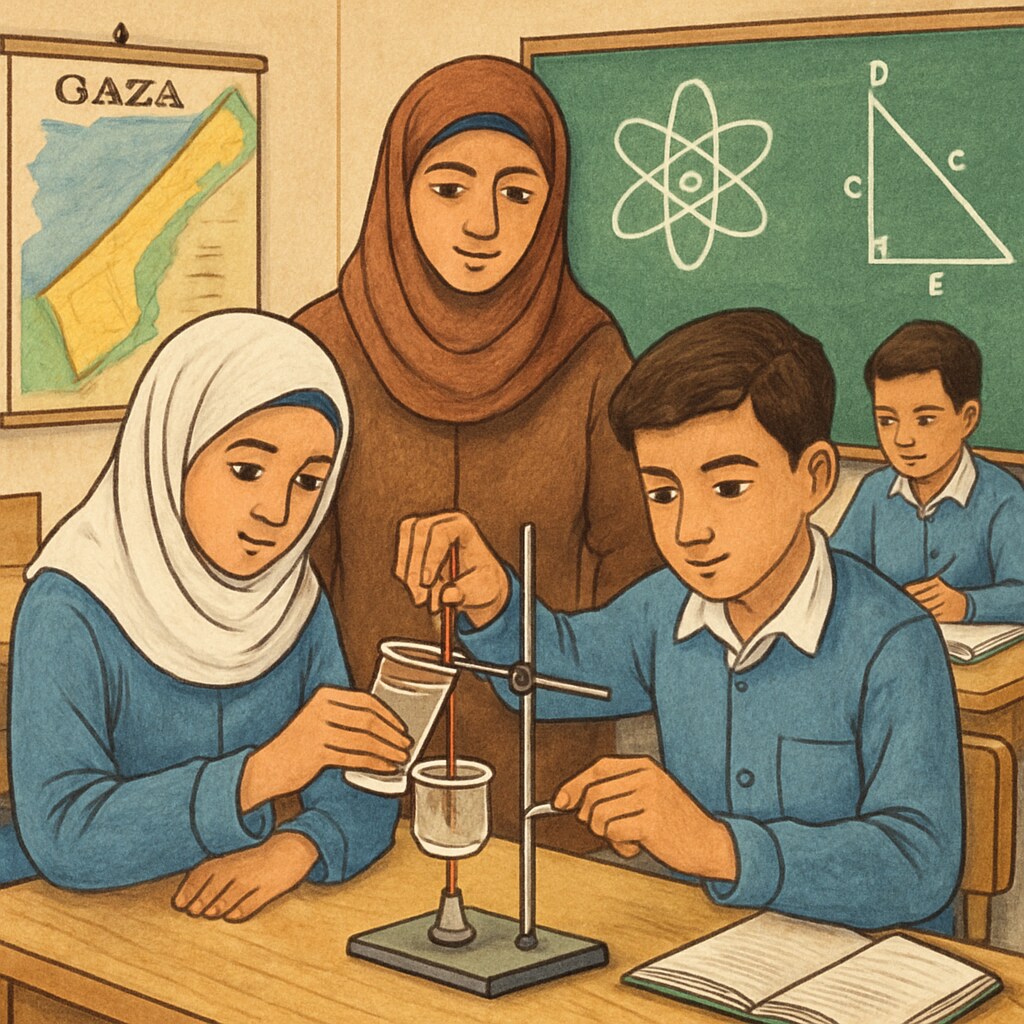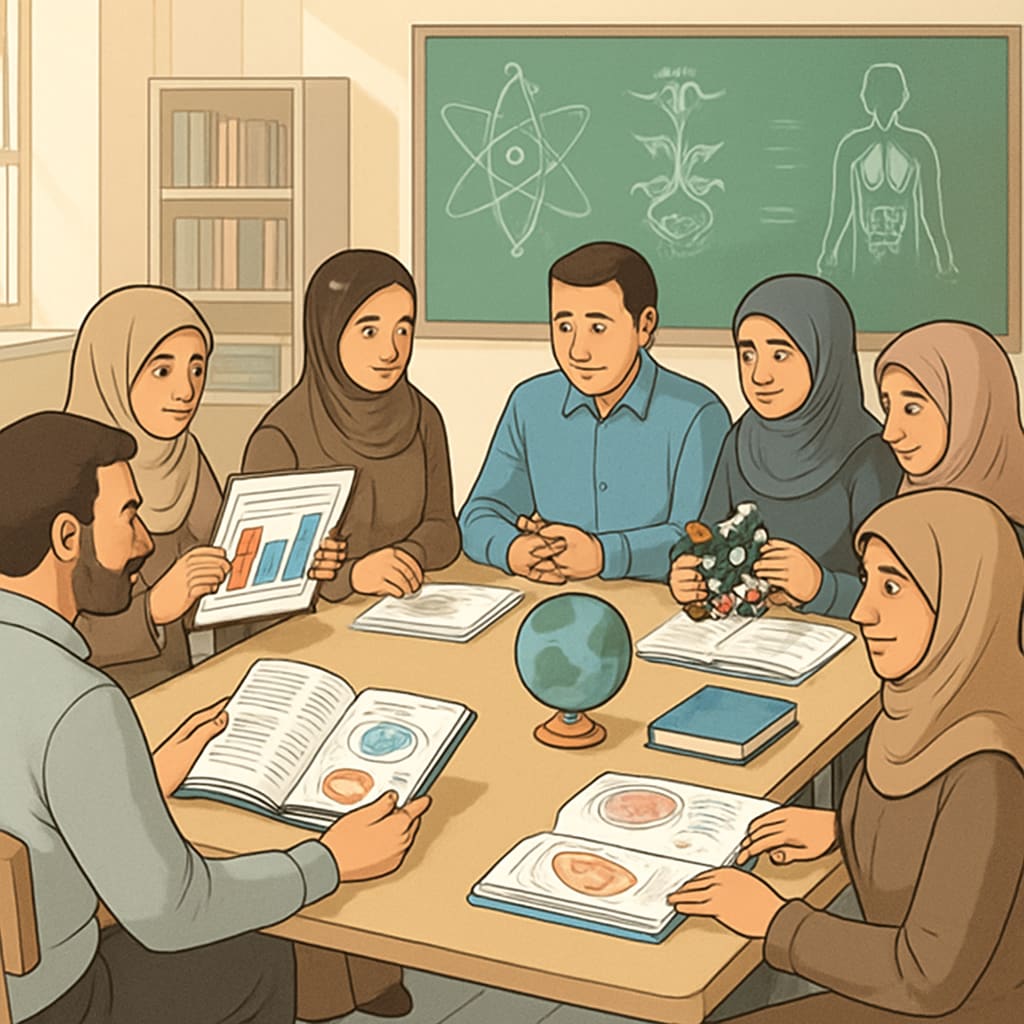Rebuilding education in Gaza is not just a necessity; it is a cornerstone for long-term peace and stability. Developing a comprehensive teaching syllabus, particularly in science and social studies, is vital to equip students with the knowledge and critical thinking skills needed for their future. This article examines the process of designing curricula for Gaza’s unique context, highlighting the challenges, opportunities, and implementation strategies.
The Importance of Science and Social Studies in Gaza’s Education System
Science and social studies are essential subjects for empowering students with both technical knowledge and an understanding of their society. Science education fosters innovation, problem-solving skills, and curiosity about the natural world, which are crucial for rebuilding infrastructure and advancing technology in Gaza. Social studies, on the other hand, help students understand their history, culture, and the importance of civic responsibility, fostering a sense of community and shared purpose.
In post-conflict regions like Gaza, these subjects take on an even greater significance. They offer tools for critical thinking and resilience, enabling students not only to envision a better future but also to actively participate in creating it. According to UNESCO, education in emergencies plays a critical role in restoring normalcy and hope.

Challenges in Developing Curricula for Gaza Schools
Designing curricula for Gaza involves several unique challenges. First, there is the issue of limited resources. Many schools lack basic facilities such as laboratories, libraries, and internet access, which are essential for effective science education. Additionally, ongoing instability can disrupt the implementation of educational programs.
Another significant challenge is tailoring the content to address the socio-political realities of Gaza. Social studies curricula must navigate sensitive topics related to history and conflict while promoting unity and understanding. Balancing these elements requires careful planning and consultation with educators, community leaders, and international experts.
Lastly, teacher training is a critical hurdle. Without adequately trained educators, even the most well-designed curriculum cannot succeed. Teachers need ongoing professional development to effectively deliver new content and adapt to the evolving needs of their students.
Strategies for Implementing Effective Curricula
Despite these challenges, there are several strategies that can help in creating and implementing effective science and social studies curricula for Gaza schools:
- Community Involvement: Involving parents, local leaders, and students in the curriculum development process ensures that the content is relevant and culturally sensitive.
- International Collaboration: Partnering with global organizations, such as Britannica’s education programs, can provide valuable insights and resources.
- Resource Optimization: Leveraging digital tools and open educational resources (OERs) can help overcome the limitations of physical infrastructure.
- Teacher Training: Regular workshops and online training sessions can empower teachers to deliver the curriculum effectively.
- Focus on Practical Learning: Incorporating hands-on experiments and real-world case studies makes learning more engaging and applicable.
These strategies can be adapted to fit the specific needs and constraints of Gaza’s educational landscape, laying the foundation for sustained improvement.

Looking Ahead: Measuring Success and Sustainability
For long-term success, it is essential to establish metrics to evaluate the effectiveness of the curricula. These could include student performance in standardized assessments, teacher feedback, and community satisfaction surveys. Additionally, sustainability should be a key focus. This means ensuring that the curriculum can evolve over time to reflect advancements in education and the changing needs of Gaza’s society.
In conclusion, developing science and social studies curricula for Gaza schools is a challenging but vital endeavor. By addressing these subjects, educators can help rebuild not just infrastructure, but also the resilience and hope of an entire generation. With the right strategies, resources, and partnerships, education can become a powerful tool for transforming lives and fostering stability in Gaza.
Readability guidance: Short paragraphs and lists have been used to enhance readability. Care has been taken to minimize passive voice and long sentences, ensuring the content is accessible and engaging. Transition words are evenly distributed to maintain a smooth flow.


